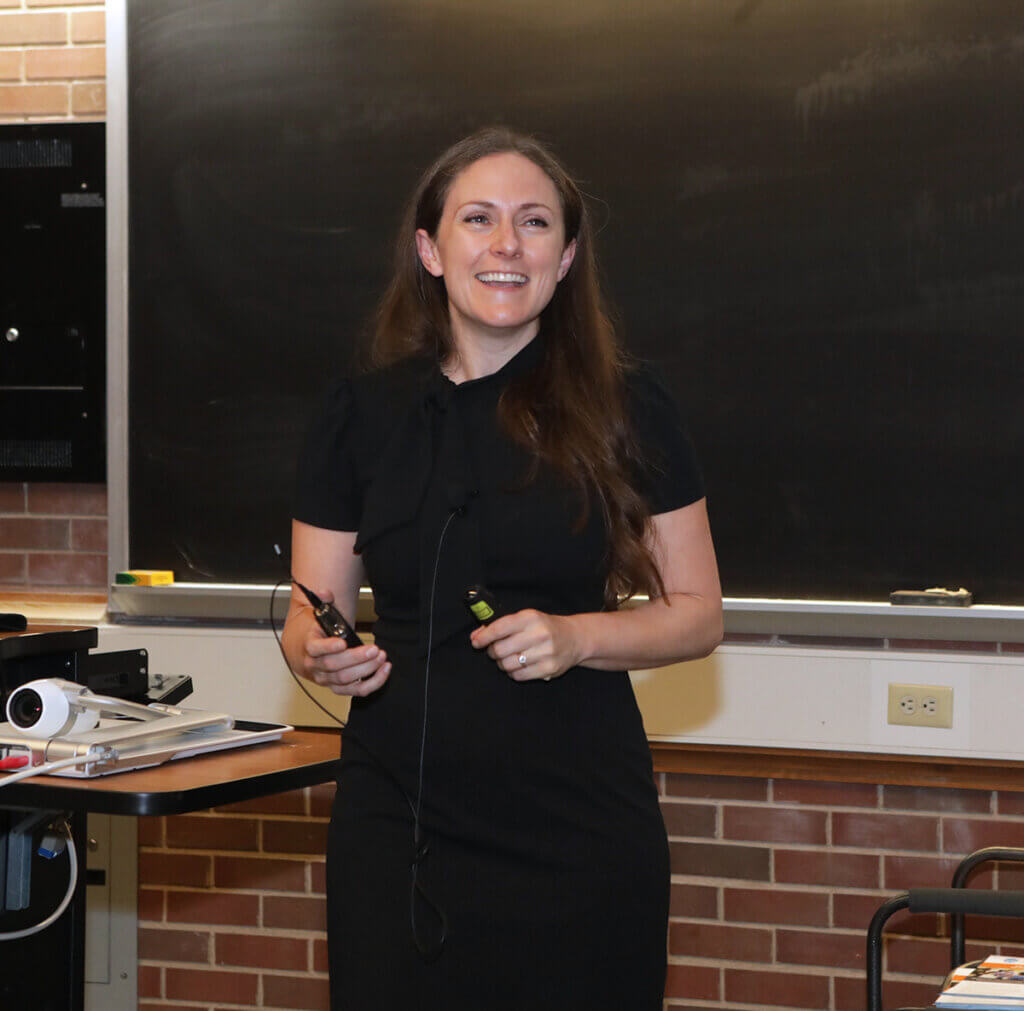One of the unique springtime opportunities for the Purdue University College of Veterinary Medicine is a day set aside to showcase Purdue veterinary medical scholarship through special presentations, including talks by some of the college’s premier researchers. An example at this year’s PVM Research Day on April 12 involved an insightful look at the science behind the human-animal bond by the winner of the 2021 Zoetis Award for Veterinary Research Excellence, Dr. Maggie O’Haire, professor of human-animal interaction in the Department of Comparative Pathobiology.

On each PVM Research Day, the recipient of the previous years’ Zoetis Award is one of the featured speakers. During her talk, Dr. O’Haire highlighted the importance of research in the field of human-animal interaction, especially in relation to the use of service dogs. Focusing her comments primarily on service dogs as a therapy for veterans suffering with PTSD, Dr. O’Haire explained how research can lead to greater support for these programs.
Dr. O’Haire pointed out that approximately 20 percent of veterans are diagnosed with PTSD, of which only 50 percent seek treatment. Twenty to 40 percent of those in treatment drop out. Dr. O’Haire explained that her team’s research has provided evidence that service dogs can alleviate some PTSD symptoms. The data, collected via self-report surveys and stress hormone level testing, is limited but promising. Veterans reported fewer PTSD symptoms and improved mood, while the testing of samples showed healthier levels of stress hormones.
According to Dr. O’Haire, so far, the research already has helped lead to the signing of the federal Puppies Assisting Wounded Servicemembers (PAWS) for Veterans Therapy Act. The new law requires the Department of Veterans Affairs “… to conduct a five-year pilot program to provide canine training to eligible veterans diagnosed with PTSD, as an element of a complementary and integrative health program.” While that milestone is significant, Dr. O’Haire emphasized the importance of further research to establish additional documentation showing that service dog programs are worth the investment. Service dogs are already in high demand and she points out that increased public support and funding not only would help people who stand to benefit from service dogs, but also would help to maximize the effectiveness of these working dogs.
Dr. O’Haire also briefly discussed other examples of service dog programs, including those that involve providing facility dogs for pediatric oncology centers and service dogs for individuals with autism spectrum disorder. Pediatric oncology facility dogs have been shown to help hospital personnel reduce burnout, turnover, and improve mental health. Dr. O’Haire concluded her talk by explaining how these other service dog applications also require further research to satisfactorily document their efficacy and help heighten support for service dog programs of all kinds.
Recordings of this presentation as well as panel discussions, additional presenters throughout the day, and the award presentations are available on the PVM Research Day webpage. Click here to view a gallery of photos from the event.
